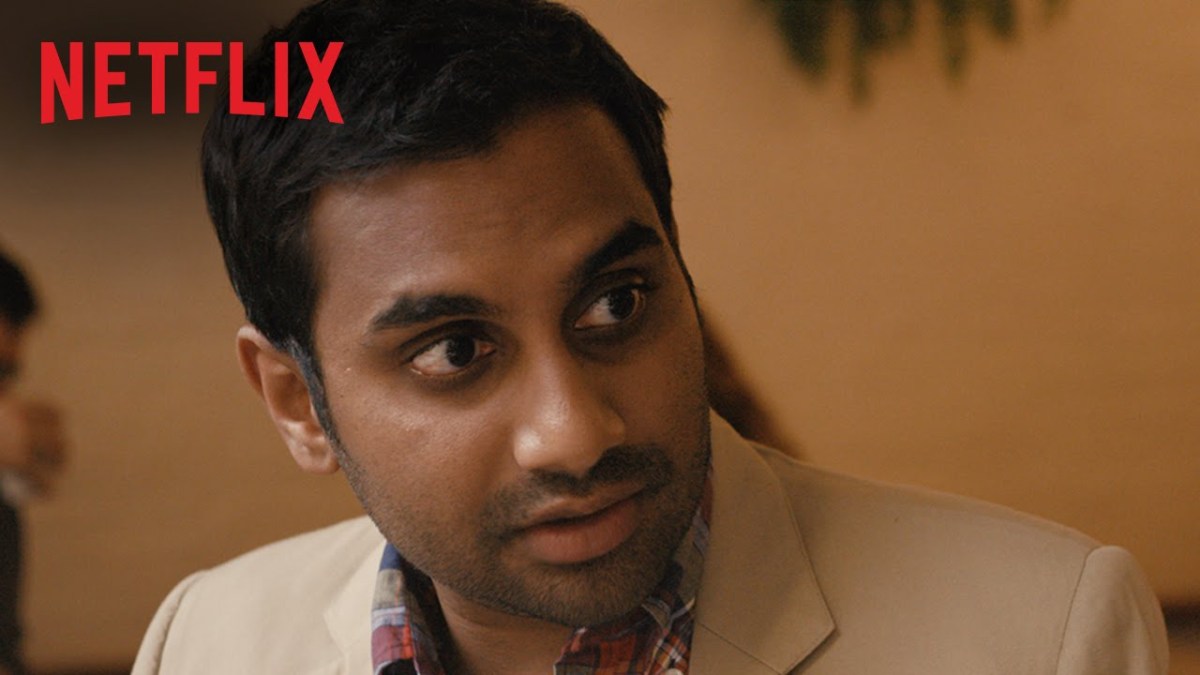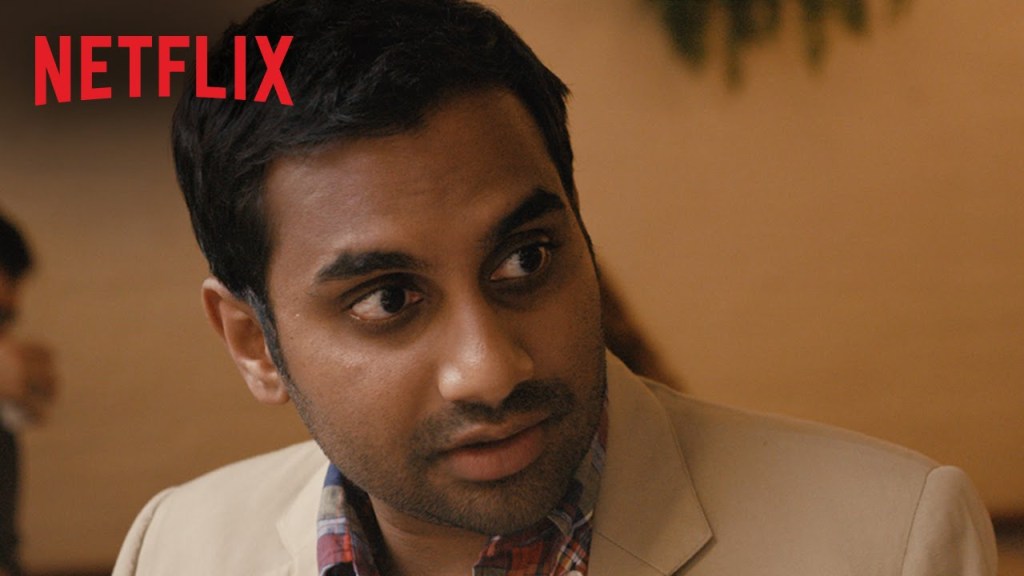
Master of None’s flickering, musical openings set the stage for the artfully-lit lives of two attractive white people, whose mundane lives are destined to intertwine. The art-house feel of it all is a filmic feature too often followed by the aforementioned, but Master of None pairs this title sequence with a show that is anything but. Aziz Ansari – both the show’s co-creator and star – pulls no punches in his dissection of the lack of accurate on-screen racial representation, particularly in the show’s 4th episode ‘Indians on TV’. It’s worth noting that Master of None is revolutionary in itself with a South Asian male lead, a racial demographic that is, as the episode makes clear, so often tokenized.
“Indians just aren’t at that level yet. Yeah, there’s more Indians popping up every now and then, but we’re like set decoration. We’re not the ones doing the main stuff. We’re not fucking the girls and all that stuff. We’re just not there yet.”
In the episode Ansari’s character, an actor named Dev, struggles finding a role he can play with integrity as an person of colour: most are minor, stereotypical roles require him to put on a caricature of an accent. The plot really gets set in motion when Dev discovers he has been rejected from a more substantial role on the grounds of his ethnicity: the producers of a Friends-esque sitcom refuse to hire more than one South Asian lead. It is very clear that Ansari has crafted his own cast with diversity in mind, and is making a point about what network executives should be striving for. Denise (Lena Waithe) clearly the most savvy of Dev’s group, is a black lesbian woman, another under-represented demographic written in an entirely un-stereotypical way. Existing at the intersection of sex, race, and sexuality, Waithe’s character opens up a dialogue about social issues pertaining to these aspects of identity. Ansari has called Arnold (Eric Wareheim) Dev’s ‘token white friend’ while, as he jokes, he is a typically white part in being a fully rounded character. Brian (Kelvin Yu) is given the almost entirely unheard-of role of East Asian heartthrob: the treatment of men of colour, specifically Asian men, as attractive, sexual beings is perhaps my favourite aspect of the show simply because it is so rare while the emasculation of Asian men is rife in television.
This is not at all to say that the show is the pinnacle of progressiveness. Although Ansari has certainly worked to have it be so, many have noted a hypocrisy: the ironic lack of love interests who are people of colour. Dev’s main love interest, portrayed by biracial actress Noël Wells, is very clearly coded as white. The girl who is considered the most attractive girl Dev knows (Nina Arianda) is also white. And then there’s Claire Danes.
Some have defended Ansari by naming Annie Chang’s character Caroline as a non-white love interest, despite her minimal airtime as a girl who turns out to be a set-up for a joke about online dating and a device to further Dev’s relationship with Claire Dane’s character. When questioned about the absence of WOC, Ansari has stated that there were no ethnic requirements in the casting: he cited his chemistry Wells for his decision to cast her, his friendship with and admiration of Claire Danes, and Nina Arianda’s Cartman impression. Although I’m side-eyeing him for this frankly run of the mill ‘we hired the best people’ excuse, I do appreciate the representation of white-POC interracial relationships, and his attention the cultural quirks that often accompany them. Ansari has even mentioned that he drew from his own relationship to inform Dev and Rachel’s romance.
But by far, the most controversial element of the series is Dev’s claim that:
“People don’t get that fired up about racist Asian or Indian stuff. I feel like you only risk starting a brouhaha if you say something bad about black people or gay people.”
In my opinion, Dev isn’t wrong. People aren’t hugely passionate about ‘racist Asian or Indian stuff’, but only because the media doesn’t really care about anything that isn’t white. ‘Black Girl Dangerous’ Mia Mckenzie puts it quite well, as she states in a recent podcast that the visibility of black people has been earned: “you have to mobilise for your community if you want white media to care, because they don’t and we know that and that’s why we mobilise.” Guest-host and blogger Cate Young added that, “people too often conflate hypervisibility with genuine care.” And it’s completely true.
A much more universal concept put forward by Ansari was portrayal of diasporic life seen in the episode ‘Parents’. In an extremely poignant scene, we see Dev and Brian treat their fathers with a level of disrespect equivalent to what they faced entering the country originally. The conversations between the generations are touching, convincing, and often, for watchers who are children of first-generation immigrants, indicative of a lack of appreciation for their own parents’ sacrifices. Other notable features of the series appear in ‘Ladies and Gentlemen’, or the ‘feminism episode’. Ansari draws a striking contrast between Dev’s comedic stroll home after dark and his female co-worker’s ominous horror movie-esque one, complete with an Entitled Nice Guy™. The episode even addresses frustration of not having your problems taken seriously as a woman, and the particular brand of disappointment felt when the disregard comes from a loved one. Once again, Dev and Rachel’s relationship proves itself to be realistic in its dynamics.

“Can you tuck me in before you leave?”
Dev doesn’t really concern himself with the trappings of masculinity, or, as those burdened by the aforementioned would say, he revels in his ‘metrosexuality’. There is much of Ansari himself infused throughout, including his love of food and cooking. Dev is a fully-fleshed out, complex, South Asian character. So Master of None is pretty self-involved: it deals with the casting of men of colour but fails to cast women of colour, it complains about the lack of Asian specific racial justice but ignores the complexities of anti-blackness. However it is expectedly so, that is the compromise it has to make for being so genuinely personal.
Words by Jenna Mahale
Image source(s):
